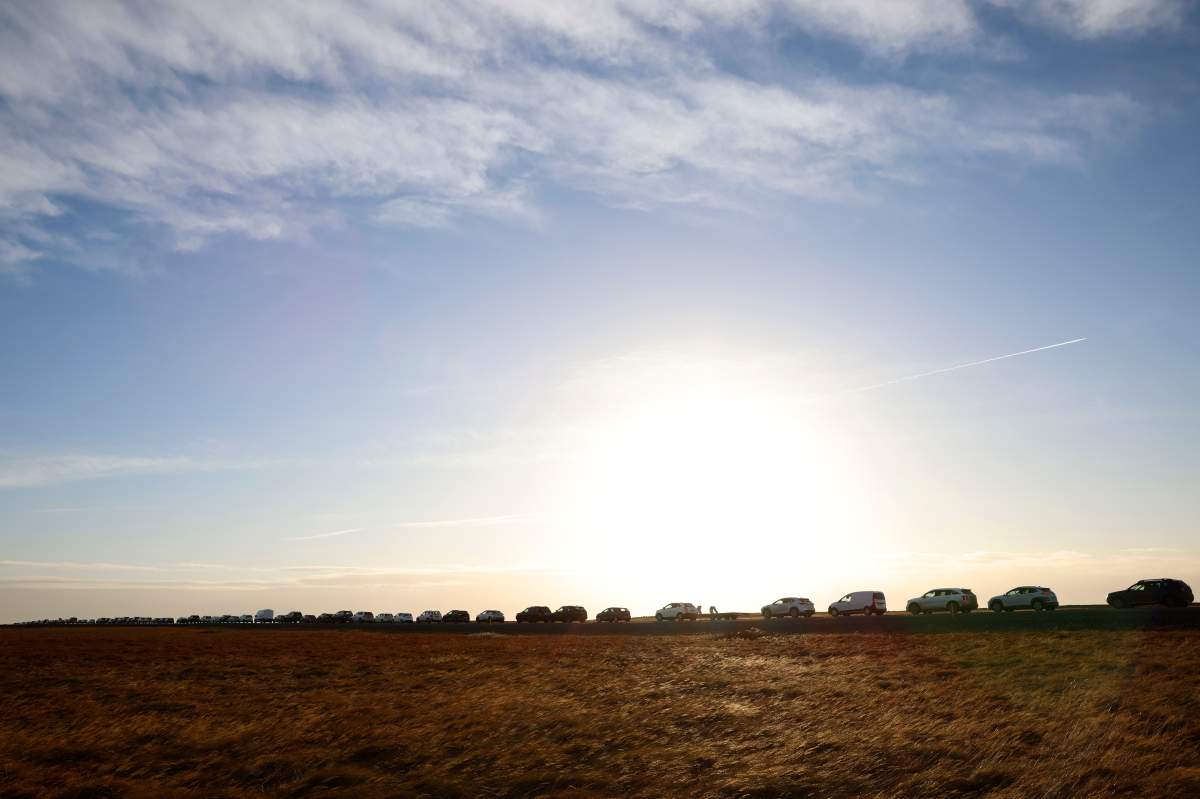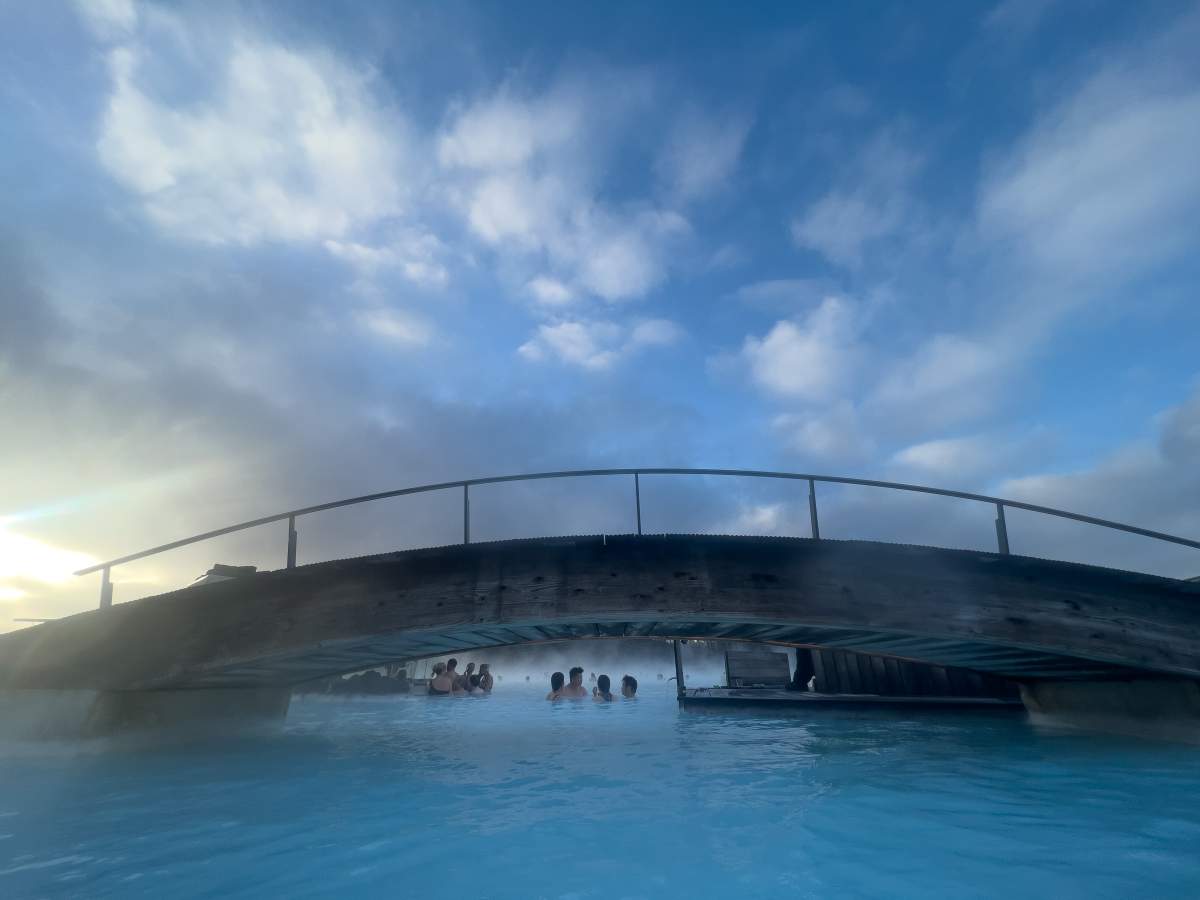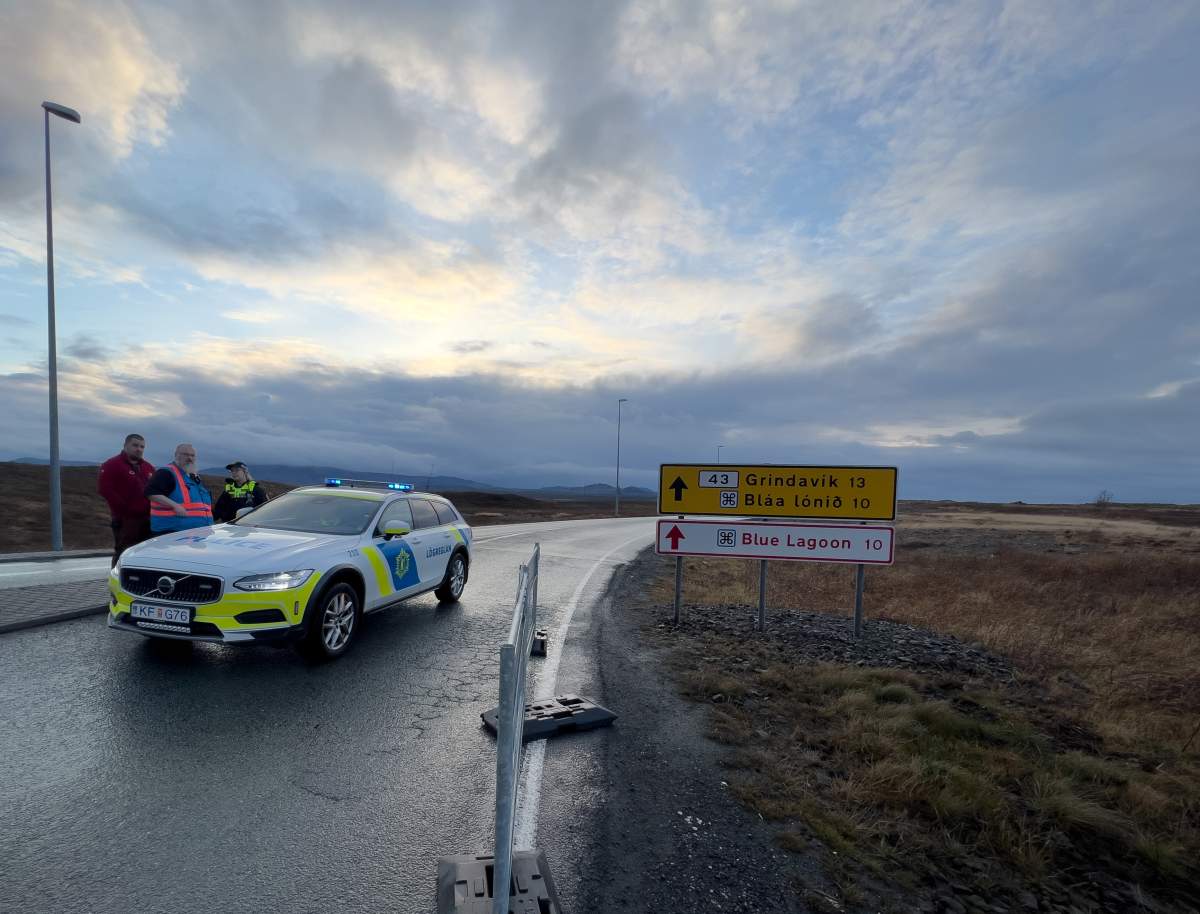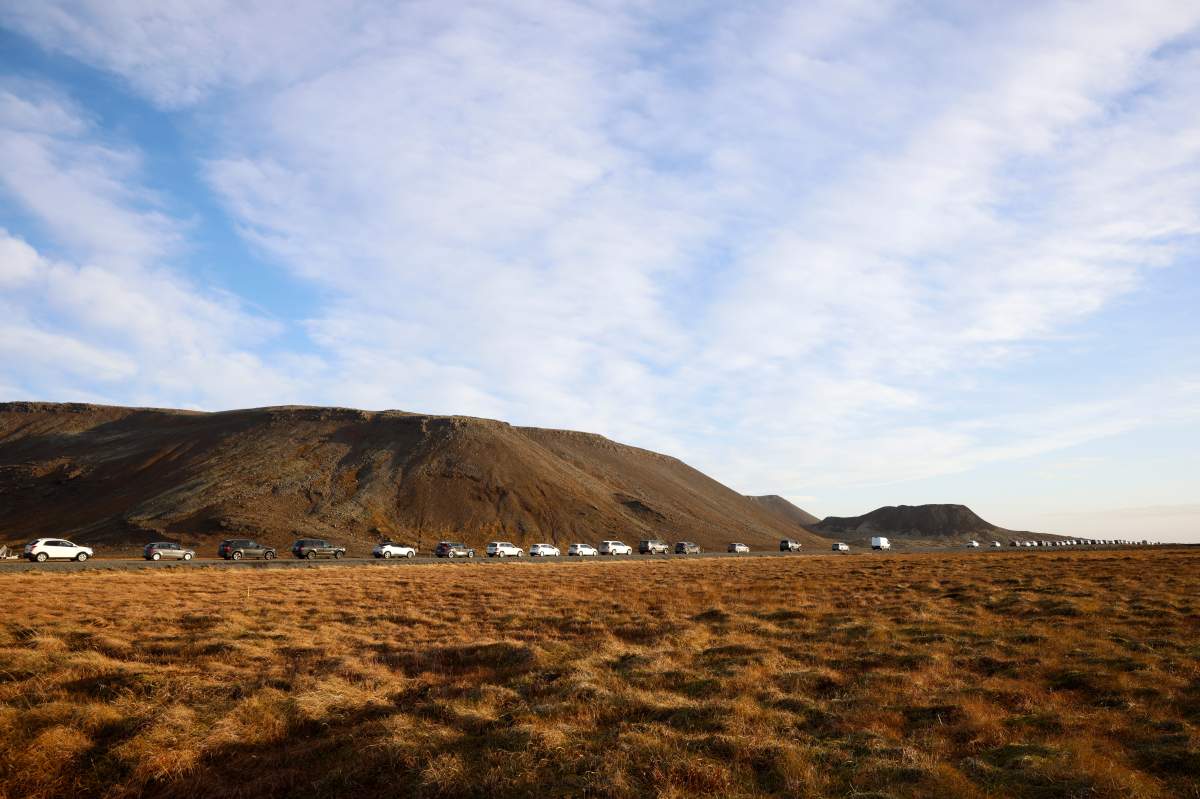The government of Iceland has ordered the evacuation of a small town ahead of a “potential volcanic eruption” and days of seismic activities.

Iceland’s Meteorological Office said some 900 earthquakes were detected Monday in the country’s southwest, near the town of Grindavík.
Grindavík, a small fishing town some 50 kilometres from the capital, Reykjavik, and roughly 30 kilometres from the Keflavík International Airport, was evacuated as a precaution.
With evidence of magma spreading rapidly underground, Icelandic Civil Protection authorities have declared a state of emergency.
Here is what you need to know.
What’s going on?
Since late October, the Reykjanes Peninsula has experienced an increase in volcanic and seismic activity.
The Reykjanes region has seen several eruptions in unpopulated areas in recent years. The latest could begin on the seabed just southwest of Grindavik, the meteorological office said.
Concern about a possible eruption increased in the early hours of Thursday when a magnitude-4.8 earthquake hit the area, forcing the popular Blue Lagoon geothermal resort to temporarily close.
That day, 1,400 earthquakes had been recorded in the previous 24 hours; the magnitude-4.8 earthquake was the largest since the tremors began in late October, the meteorological office said.
In the days since, officials have said magma has been accumulating under the surface and could reach it in the coming days.

Get daily National news
“The likelihood of a volcanic eruption occurring in the near future is deemed considerable,” the meteorological office said in an update Sunday.
Global Affairs Canada (GAC) updated its travel advisory to Iceland Friday with information about current events, but maintains that Canadians should take “normal security precautions” in the country.
A GAC spokesperson told Global News in an email there are 128 Canadians currently registered as being in Iceland.

“GAC is closely monitoring the increase in volcanic and seismic activity in Iceland,” they said.
“GAC stands ready to provide consular assistance to Canadian citizens as required.”
In its travel advisory, GAC said if eruptions occur, it could create dangerous lava flows and clouds of volcanic gas that could bring potentially dangerous pollution levels.
“If you are in an area affected by volcanic gas: monitor the local air quality, particularly if you suffer from respiratory ailments; keep your windows closed and turn off ventilation systems; avoid low-lying ground and valleys,” GAC said.
“If you are in Iceland: avoid areas close to mountains and steep slopes on the Reykjanes peninsula due to danger of falling rocks and landslides; monitor local media to stay informed about the evolving situation; follow the advice of local authorities, including evacuation orders.”

Reykjanes a recent volcanic hot spot
Reykjanes is a volcanic and seismic hot spot southwest of the capital Reykjavik. In March 2021, lava fountains erupted spectacularly from a fissure in the region’s Fagradalsfjall volcanic system.
Volcanic activity in the area continued for six months that year, prompting thousands of Icelanders and tourists to visit the scene.
In August 2022, a three-week eruption happened in the same area, followed by another in July of this year.
The Fagradalsfjall system, which is around six kilometres wide and 19 km long, had remained inactive for more than 6,000 years prior to recent eruptions.
What is the latest update?
Seismicity along the magma intrusion continues, although the size and intensity of the activity is decreasing, the meteorological office said Monday.
Since midnight local time, around 900 earthquakes were detected. The seismic activity is concentrated in the region of the intrusion at a depth of about two to five kilometres.
“According to our latest estimates, the volcanic hazard assessment in and around Grindavík is unchanged from 12 November,” the office said.
“All monitoring systems are being monitored closely in real-time, especially near Grindavík, for any indications of sudden change.”
— with files from The Associated Press and Reuters
- Canada has ‘limited’ seats for citizens on commercial flights amid Iran war
- Vegas casino owner’s ‘at par’ pricing sees 15K Canadian visitors in 1 month
- U.S. sinks Iranian warship, Hegseth says, as Iran conflict expands
- ‘An eyesore’: Trump’s White House ballroom plans receive deluge of public comments












Comments
Want to discuss? Please read our Commenting Policy first.